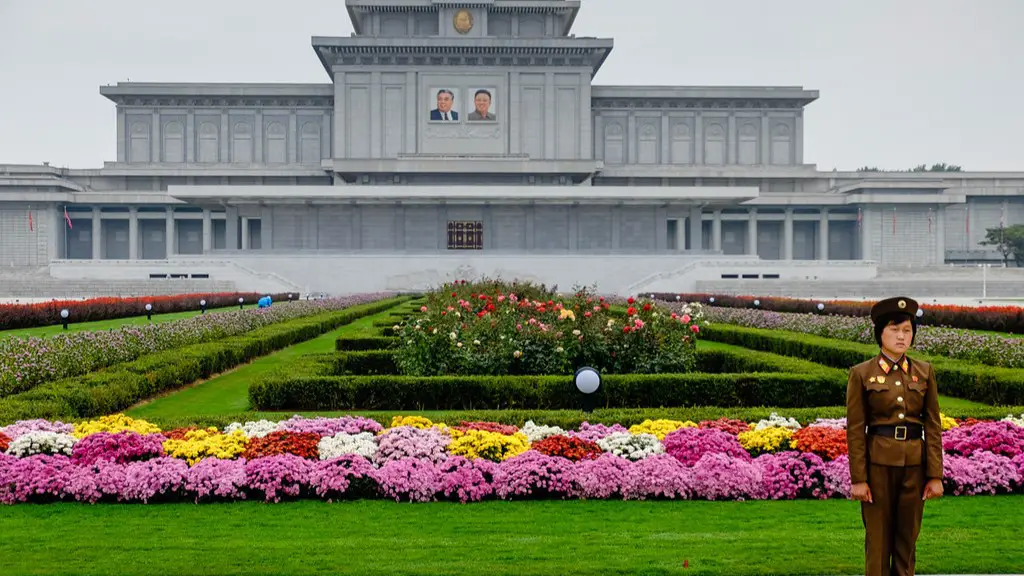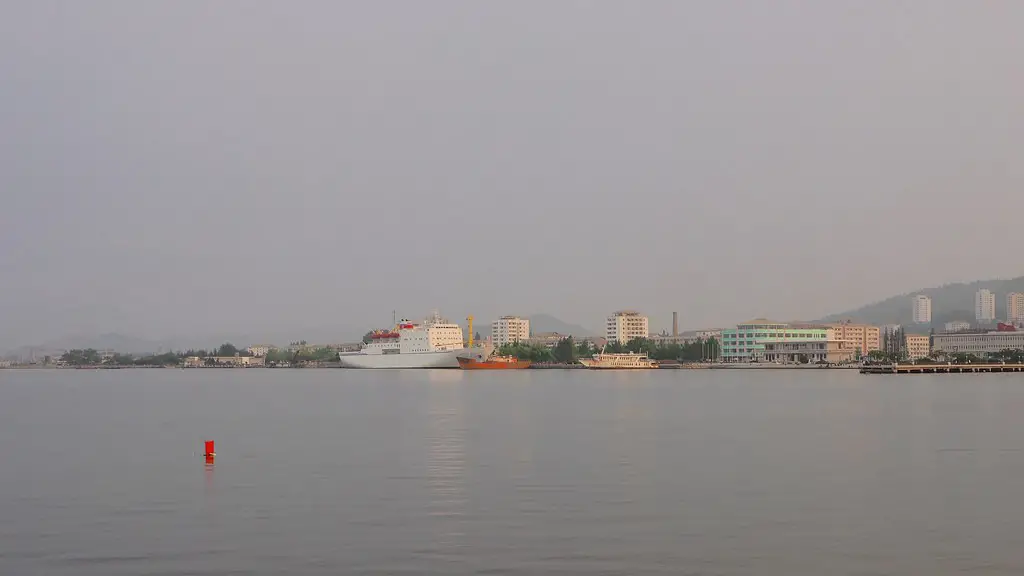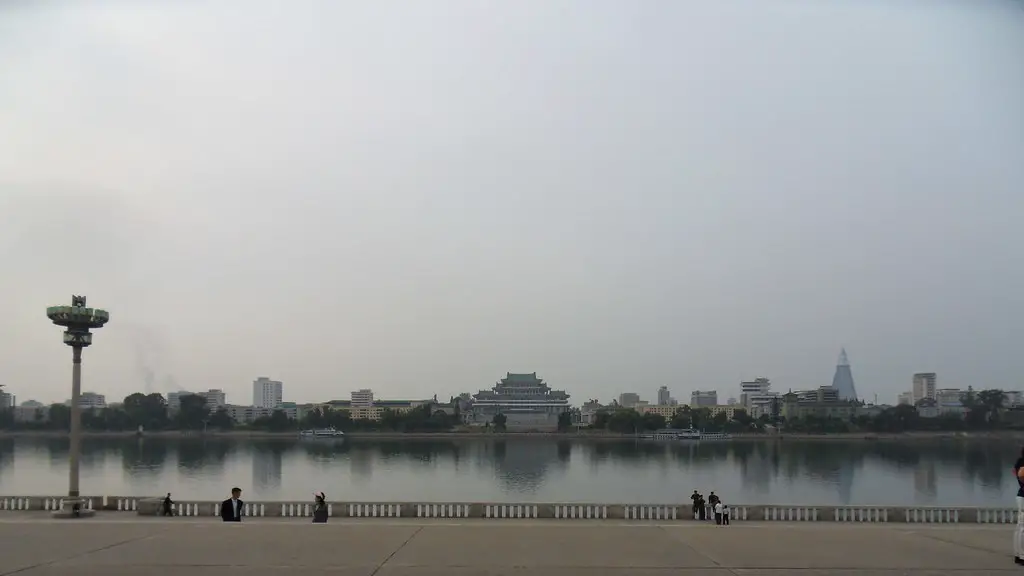As a country shrouded in mystery and only recently emerging from a long historical spell of authoritarian rule, North Korea has for years made headlines for it’s nuclear ambitions. North Korea claims to have successfully tested nuclear weapons– weapons that could easily cause catastrophic devastation if not handled properly. This article will explore if North Korea has truly tested nuclear weapons, determining the the extent of the country’s nuclear capabilities, and the implications of these tests on the world.
Background Information
North Korea has certainly made their nuclear ambitions clear, with the country having conducted 6 nuclear tests since 2006 as part of their pursuit of nuclear deterrence. The reports of the first test in 2006 caused international uproar, sparking condemnation from the UN Security Council and concern from the international community. The country has sought nuclear technology, and nuclear capabilities, since the 1950s when the Korean War caused tensions between the North and South Korea.
The UN Security Council has both condemned and imposed sanctions against North Korea for their nuclear tests. These sanctions have affected the country’s economy and finances, with the goal of limiting North Korea’s ability to purchase nuclear technology or develop and improve their nuclear weapons. But, despite this opposition and limitation, it is uncertain to what extent North Korea has successfully and fully tested their nuclear weapons.
Data
North Korea has certainly conducted a number of nuclear tests, but the increase in explosive power contained in the tests has not been consistent. The first tests conducted in 2006 and 2009 were shown to be able to create an explosion of around 7-8 kilotons, far less powerful than the 20 kiloton explosion created by the United States in the atomic bomb detonated in 1945. The later tests, however, were powerful and produced explosive power in the hundreds of kilotons.
The most recent test conducted by North Korea in 2017 was the most powerful test yet, with an estimated explosive power in the high hundreds of kilotons. The test, according to North Korean governmental claims, was the detonation of a hydrogen bomb, a type of nuclear weapon far more potent than an atomic bomb.
Perspectives from Experts
The detonation, nature, and nuclear capabilities of the nuclear tests have been heatedly debated among experts and in international institutions. Some experts have argued that the data gathered from the nuclear tests indicate it is actually impossible for North Korea to have detonated a true hydrogen bomb, as their technology is not sufficient source the necessary fuel required to create the enormous amount of energy released in the tests.
Others have argued that the nuclear tests could have been simply an improvement in technology, with the reignited tensions in the Korean peninsula having caused North Korea to develop new and improved atomic bombs. There has also been some indicator that North Korea is attempting to create or take possession of a ‘neutron bomb’, a bomb which releases more radiation than an atomic bomb.
Own Insights and Analysis
While North Korea certainly has the nuclear capability to create a devastating explosion, the data does not give a clear indication that the country has fully tested their technology. The estimated explosive power released by some of the most recent tests has cast doubt on the official claims of North Korea and the possibility of them testing a true hydrogen bomb.
This opens up questions as to the ethics of nuclear testing and considerations as to how much power governments should have to develop and even test weapons of mass destruction. These questions are debated and will continue to persist while North Korea maintains their stance of anti-Western rhetoric and their decision to disregard international sanctions.
Economical Impact
The advancement in North Korea’s nuclear capabilities has resulted in intense economic turmoil in the country. With sanctions imposed by the UN Security Council increasingly compounding the economic impoverishment of the North Korean people, North Korea has been unable to access the technology and fuel suitable for producing a hydrogen bomb.
The result of the nuclear tests, theoretically intended to deter a war or military attack from foreign states, has been a plummeting economy, and widespread poverty. This poverty has crippled North Korea’s ability to improve their nuclear technology and has caused long-term damage to the country’s finances and technology.
International Response
The international response to North Korea’s nuclear tests has been one of condemnation. Nations have already voiced their opposition to the country’s nuclear pursuits and have been slowly increasing the severity of sanctions they are imposing on North Korea. These sanctions, while effective in preventing North Korea from prospering militarily, have been largely unsuccessful in motivating the nation to abandon their nuclear weapons program.
The international community is currently split on how to handle North Korea’s nuclear ambitions. Both China and the US are calling for diplomatic negotiations, while Russia prompts a more carefully examined approach to the situation, as North Korea has remained an ally in the past and present. The main point of resistance, however, lies in North Korea’s refusal to hear foreign appeals and open dialogue.
Psychological Impact
The psychological implications of North Korea’s nuclear tests are concerning. Aggressive rhetoric from the North Korean government, combined with the potential for devastating destruction, has caused many to fear that North Korea is a great threat to world peace. This fear has caused an increase in tension between North Korea, foreign governments, and their citizens across the world.
The situation has been worsened by the fact that North Korea remains relatively closed off and is largely unaware as to the severity of their tests and the destruction they could arguably cause. As of now, further negotiations and talks remain the only approach to the situation and there has yet to be an agreement between the foreign powers and North Korea.
Geopolitical Consequences
The implications of North Korea’s nuclear tests, if true, extend to further than North and South Korea, as the demonstrations of an aggressor power producing a weapon of mass destruction has caused amplified tension and unease in the Asia-Pacific region. Already, the international condemnation of North Korea has led to the formation of a number of military alliances, such as Australia and the US, in order to prevent any potential attack by North Korea.
If North Korea has indeed tested nuclear weapons and created a nuclear arsenal, the implication is dire and affects the geopolitical stability of the region. This could potentially lead to a ‘freeze’ of relations in the region, with countries refusing to cooperate in diplomatic negotiations and military development. The choice of nations to arm themselves with nuclear weapons in the region has raised worry, as a regional arms race could be in the making and a resolution to the North Korean situation would become increasingly harder.
Public Opinion
Public opinion on the matter has been split, with some fearing that North Korea has now reached a point of no return and that in order to prevent a nuclear attack a preemptive nuclear strike must be made. Other public opinion has been that a diplomatic solution must still exist and that the world community should work together to peacefully solve the situation without causing more destruction or starvation of the North Korean population.
Finally, there have been voices that have questioned the true nature and capability of North Korea’s nuclear arsenal. The truth remains uncertain, with the data gathered from the tests not providing significant evidence to determine if North Korea has truly tested a hydrogen bomb or merely an atomic bomb.




